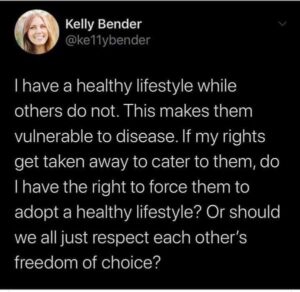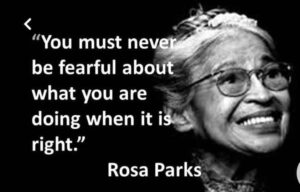
Your Impact On Other People

Freedom Power and Victory to You

A Post From Doug Storm
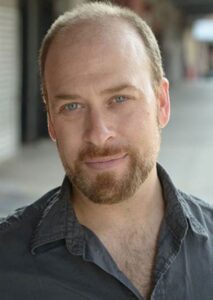
And now for a good cry….from Doug Storm
“I was with the national tour of “Les Miserables” and we were performing in Salt Lake City. At the time, we were doing the poster sales for Broadway Cares/ Equity Fights AIDS. If someone donated $50, they would receive a poster signed by the entire cast.
After one performance, I was in costume selling posters in the lobby. I noticed a little girl who was looking at me like I was the Messiah. I heard her say, “Please, Mom, please, please, can I have a poster? Please, oh, please, please, please?” Her mom said no, and they walked away. It was a moment I will never forget. In my left ear, quite distinctly, I heard a little whisper. It said, “Go, Doug, go.”
Suddenly, without giving it any more thought, I took off in full costume outside the theater. After walking through the crowds, I saw the girl and her mother down the block. They had already crossed the street. As I was running down the street in my “Les Miserables” costume, I thought that I was so busted. But I didn’t really care.
As I approached the girl, I said, “Excuse me.” She turned around, and just stared.
“You forgot your poster.” I handed her a poster, and I was gone.
I turned around and ran back to the theater before anyone could say anything. I went to the company manager’s office and I said, “I gave one of the posters away. Here is fifty dollars, my contribution to Broadway Cares.”
A few days later, there was a letter that showed up on the callboard. It read: “Dear cast of “Les Miserables”, you moved me so much. Thank you. I also want to thank you for giving my daughter the poster. I don’t know who you were, but it was a nice young man, and he was gone before anyone could say thank you. Let me tell you a little about my daughter. She is sick. She was not expected to live past a very young age. She always wanted to see “Les Miserables”. They even snuck her out of the hospital that night so she could see the show. The tickets were a gift from a family friend. I am a single mom. Money is very tight. It broke my heart to not be able to buy the poster for my daughter. Thank you so much, whoever you are. Thank you, thank you, thank you.”
The whole cast was standing around weeping. I didn’t say a word.
Four years later, the night before “The Scarlet Pimpernel” closed, I remember being bitter and jaded. Soon, I would unemployed again. Out of nowhere, at the stage door, I heard a little voice.
“Mr. Storm?”
I thought, “Oh, God, who’s calling me ‘Mr. Storm’ for crying out loud?” I looked down. I froze. It was that same little girl.
“Hi. I knew you were in the show because I’ve been following it on the Internet. I brought you a little package. Here’s a card.”
“Oh, my gosh, how are you doing? Do you want to come in? Are you seeing the show tonight?”
“No,” she said. “I’m not seeing the show tonight. I’m seeing it tomorrow. I’m seeing the last one.”
I said, “Why don’t you come around tomorrow before the show? I’ll take you backstage.”
I went upstairs and started putting on my makeup. I stopped for a second to read her card. “I just want to let you know that I’ve just been accepted to NYU Tisch School of the Arts for Drama, and I’m going to enroll because someday I want to give a kid a poster. Thank you for helping shape my life.”
I lost it. In a moment of my own despair and selfish jaded bitterness, there was that kid. Everything came full circle. That alone is why I got into this business.”
-Doug Storm, in “Making It On Broadway”
Morgan Freeman Quote
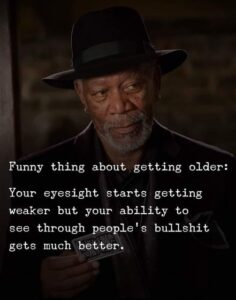
A tip to those who would be wise before their time: Look at what a person does and their products. Their actions speak louder than words.
Is It Possible I Have Been Misled?
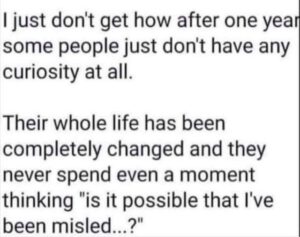
Dr Reiner Fuellmich Summarises The Case Against The COVID-19 Fraud
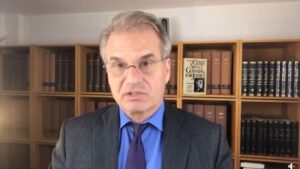
A long but detailed summary of the fraud that is COVID-19 from an experienced lawyer.
https://www.facebook.com/watch/live/?v=893740894507910&ref=watch_permalink
Czeslawa Kwoka Polish Catholic, 14 years old.
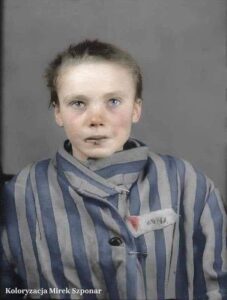
She died on February 18, 1943 in Auschwitz with a phenol injection into her heart. Shortly before the execution, she was photographed by the prisoner Whym Brasse, who testified against Czeslawa’s executioner, a woman who punched her face for the photo, according to the hematoma on the lip.
All we see is the face of a terrified little girl who didn’t even speak their language and lost her mother a few days before. She was one of about 250,000 children and underage girls executed in Auschwitz-Birkenau.
The photo, originally black and white at Memorial Oswiecim, was colored by Brazilian professional photographer Anna Amaral, who was impressed with the photo of Czeslawa and decided to color it and make it available for everyone.
So everyone knows and no one forgets
(Tom: This is the end result of intolerance of others’ viewpoints and unwillingness to respect human rights. Sadly we are seeing society herded down the same path by the criminals at the top of the food chain via their bought government and media whores. We each need to take more responsibility for changing this direction.)
How To Enlighten Without Arguing by Jay Lawrence
This is the mechanism employed by the Main Stream Media (MSM). Have various news services say exactly the same thing over and over, using the same catch-phrases and out-of-context soundbites, until the public is indoctrinated. This is how we get supporters who have no opinion of their own and can only parrot the sentiments they have been fed.
HOWEVER, there is an easy way to counter this on a broad scale basis.
Step 1) Ask the person who repeats an opinion that is obviously insane where they got the information from that they base their “opinion” on. [Be prepared to repeat your question, possibly several times, because they will probably make noises that sound like they are answering when they in fact have not actually answered the question that was asked].
Properly done this step will produce the result that you and they and anyone now listening in on your conversation will realize that the opinion was not formulated by the person you are speaking to but by MSM.
Step 2) Step 1 will have shown that there was no factual basis for their opinion so ask them what evidence of their claims they have personally seen. [Again, be prepared to ask your question again and again if the person you are speaking to doesn’t actually answer the question you asked].
There will probably be none. This step reminds the other person that they too long ago made the same decision but have forgotten.
Step 3) Say something like this, “Several years ago I decided that there were two groups that in general I couldn’t trust to tell the truth: politicians and MSM. So I started examining some of the things that MSM was saying and I found that they often had no basis in fact and/or all used the same catch-phrases and/or took sound bites out of context and claimed the speaker meant something that they didn’t. But the thing I noticed most was, they were all trying to get me to accept their opinion”.
Step 4) Give a simple example. “For example, lots of people say that Trump is racist. But I have actually watched several videos in which black and or Hispanic celebrities say that they have been a personal friend of Trump for many years and did people really believe that they would say that if he was racist?” or “Do you know that I can’t find anything that actually says that the Covid-19 virus has been isolated. Imagine that, for a whole year the world has been in lockdown over a virus that they can’t even find!”
Step 5) Shut up and/or change the subject because you are not there to make them wrong. You are their to help them, or those listening on, to start thinking for themselves. So let them do that, for themselves.
If you find this helpful, please share it.
On Respecting Freedom Of Choice
